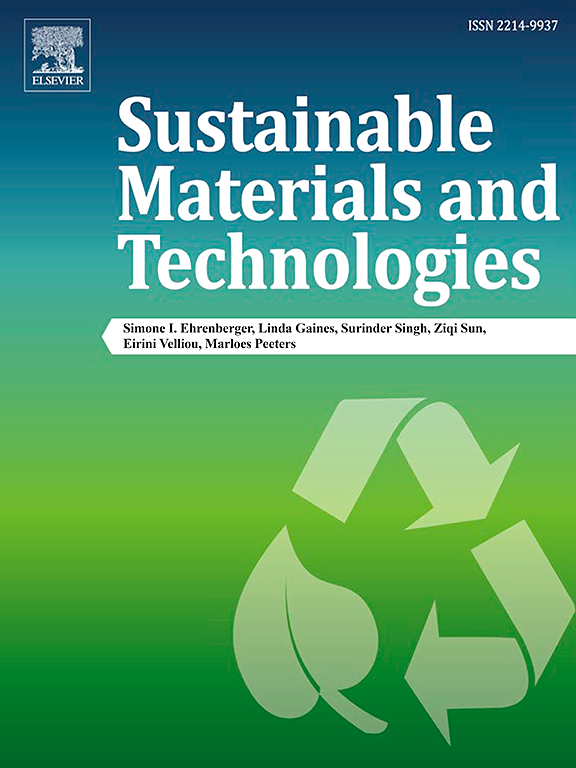提高农业废弃物生物炭对退化土壤改良剂效能的改性方向
IF 9.2
2区 工程技术
Q1 ENERGY & FUELS
引用次数: 0
摘要
每年产生的农业废弃物超过1400亿吨,其管理已成为一个涉及经济和环境问题的关键问题。废物转化为生物炭(BC)提供了一种可持续的解决方案,即在碳固存、污染修复和土壤再生等各种应用中具有前景的材料。最新的研究对生物炭(BC)改性的创新技术的发展做出了重大贡献,超越了传统的生物质热解处理。这些处理通常会增加BC的结构参数和表面化学性质,从而增强其与各种物种的结合能力。高吸附能力使其成为作物必需营养物质的有效载体或有效的固定剂,限制有毒化合物的可用性。到目前为止,改性BC对土壤通气性、保水性和土壤微生物的生长具有满意的影响,促进了农业生态系统的整体功能。然而,它的有效性取决于土壤类型还不完全了解和难以预测,这就是为什么改良BC的农民使用是有限的和麻烦的。考虑到这一点,综述指出了BC改性对特定土壤类型的影响,突出了最有益的土壤类型。作者发现了原始BC的不良特征,并展示了最有效的处理方法,以提高其作为土壤调节剂的性能。提出了改良BC在解决土壤退化、气候变化和农业废弃物管理等问题上的优化利用路线图,并提出了新的研究方向和将改良BC与可持续实践相结合的方法。本文章由计算机程序翻译,如有差异,请以英文原文为准。
Modification directions of agricultural waste biochars to improve their effectiveness as amendments for degraded soils
With over 140 billion tons of agricultural waste generated yearly, its management has become a critical issue posing economic and environmental concerns. The waste conversion into biochar (BC) provides a sustainable solution, that is, a promising material for various applications such as carbon sequestration, pollution remediation, and soil regeneration. The latest research has contributed significantly to the development of innovative techniques of biochar (BC) modification that go beyond conventional pyrolytic processing of biomass. These treatments usually increase textural parameters and surface chemistry of BC, thereby enhancing its ability to bind various species. High adsorption capacity makes it an effective carrier for nutrients essential for crops or an efficient immobilizer limiting availability of toxic compounds. So far, it was noted that modified BC has a satisfied impact on soil aeration, water retention, and growth of soil microorganisms, stimulating overall agroecosystem functionality. However, its effectiveness depending on soil type is not fully understood and difficult to predict, which is why modified BC use by farmers is limited and troublesome. Taking this into account, the review indicates the effects of BC modification on particular soil types, highlighting the most beneficial ones. The authors identified poor features of pristine BC and showed the most effective treatment increasing its performance as a soil conditioner. A roadmap was also presented to optimize the use of modified BC in addressing the issues of soil degradation, climate change, and agricultural waste management, along with suggestions for new research directions and ways to integrate modified BC with sustainable practices.
求助全文
通过发布文献求助,成功后即可免费获取论文全文。
去求助
来源期刊

Sustainable Materials and Technologies
Energy-Renewable Energy, Sustainability and the Environment
CiteScore
13.40
自引率
4.20%
发文量
158
审稿时长
45 days
期刊介绍:
Sustainable Materials and Technologies (SM&T), an international, cross-disciplinary, fully open access journal published by Elsevier, focuses on original full-length research articles and reviews. It covers applied or fundamental science of nano-, micro-, meso-, and macro-scale aspects of materials and technologies for sustainable development. SM&T gives special attention to contributions that bridge the knowledge gap between materials and system designs.
 求助内容:
求助内容: 应助结果提醒方式:
应助结果提醒方式:


